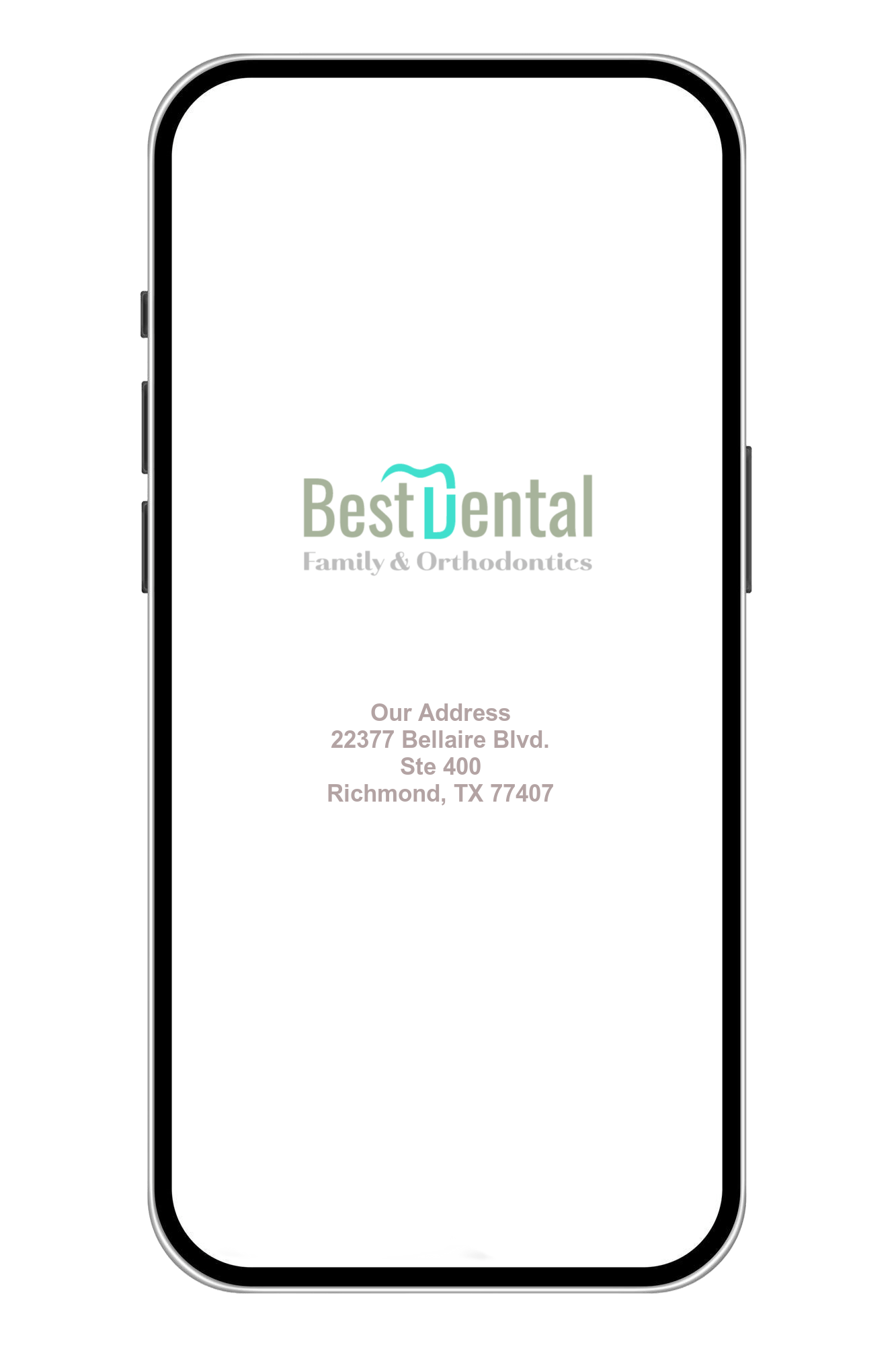Wisdom
Teeth
Removal
Katy, TX
Affordable Wisdom Teeth Extractions For Katy Residents
If you find yourself in need of wisdom teeth removal in Katy, Texas, you're in capable hands with Dr. Sonny Naderi at Best Dental. Wisdom teeth, also known as third molars, often require extraction due to their potential to cause pain, discomfort, and dental issues. Dr. Naderi, a highly skilled and experienced oral surgeon, is dedicated to providing top-notch care for patients in Katy and the surrounding areas. With his expertise and the state-of-the-art facilities at Best Dental, you can trust that your wisdom teeth removal procedure will be as smooth and comfortable as possible, ensuring your long-term oral health.
When To Remove
What are the indications that wisdom teeth need to be removed?
The removal of wisdom teeth, or third molars, may be necessary when certain indications arise. Common reasons for their extraction include impaction, where the teeth do not have enough space to emerge properly, causing pain, infection, or damage to adjacent teeth. Additionally, the presence of wisdom teeth can lead to the development of cysts, which can damage the jawbone and surrounding nerves. Pericoronitis, an inflammatory condition caused by the partial eruption of the wisdom tooth, can also necessitate extraction. Furthermore, misalignment of the wisdom teeth, leading to bite issues or overcrowding, may require their removal to prevent future dental complications. As such, it’s crucial to consult with a dental professional to assess whether the removal of wisdom teeth is necessary based on individual circumstances and oral health.
Risks?
What are the potential risks and complications associated with wisdom teeth removal?
While wisdom teeth removal is a common and generally safe procedure, certain risks and complications can arise. These may include postoperative bleeding, infection, and dry socket, a condition where the blood clot at the extraction site dissolves or dislodges prematurely, leading to intense pain and delayed healing. Nerve injury, though rare, can occur, resulting in altered sensation, numbness, or tingling in the tongue, lips, or chin. There is also a slight risk of sinus complications, particularly when the upper wisdom teeth are close to the sinus cavities. In some cases, jaw stiffness, temporary difficulty opening the mouth, and potential damage to adjacent teeth or dental restorations might occur. However, these risks can be minimized by following post-operative instructions carefully and seeking prompt medical attention if any unusual symptoms develop.

What type of anesthesia will be used during the surgery, and what are its potential side effects?
The type of anesthesia used during wisdom teeth removal can vary depending on the complexity of the procedure and patient preferences. Typically, local anesthesia is administered to numb the surgical area, ensuring you do not feel any pain during the extraction. For more complex cases or patients who experience anxiety, intravenous (IV) sedation or general anesthesia may be recommended to induce a sleep-like state and alleviate discomfort. Potential side effects of anesthesia can include temporary drowsiness, dizziness, nausea, and vomiting. While rare, more serious complications such as allergic reactions, respiratory issues, or adverse drug interactions might occur, underscoring the importance of providing a comprehensive medical history to your dentist and ensuring that the procedure is conducted in a well-equipped and monitored clinical setting with trained professionals.
How long does the procedure typically take, and what is the expected recovery time?
The duration of a wisdom teeth removal procedure can vary based on the complexity of the case, the number of teeth being extracted, and the patient’s individual circumstances. Generally, a straightforward extraction of one or two wisdom teeth may take about 45 minutes to an hour. However, more complex cases or impacted teeth might extend the surgical time. The recovery period can vary from person to person, but most individuals can expect initial healing within a few days to a week. Complete recovery, including the closure of the extraction site and resolution of any discomfort or swelling, typically takes one to two weeks. Adhering to post-operative instructions, such as taking prescribed medications, maintaining proper oral hygiene, and following dietary restrictions, can significantly contribute to a smoother and faster recovery process. It’s crucial to attend any follow-up appointments as scheduled to ensure proper healing and address any concerns that may arise during the recovery period.

Are there any specific pre-operative instructions I should follow before the surgery?
Prior to wisdom teeth removal surgery, it’s essential to adhere to specific pre-operative instructions provided by your oral surgeon or dentist to ensure the procedure goes smoothly. These instructions may include guidelines such as refraining from eating or drinking anything, including water, for a certain period before the surgery to prevent complications related to anesthesia. It’s also advisable to arrange for a responsible adult to drive you home after the procedure, especially if you’ll be under the influence of sedatives or anesthesia. In addition, you might be instructed to avoid certain medications or supplements that could increase the risk of bleeding, and to disclose any existing health conditions or medications to your dental provider to minimize potential complications. Adhering to these pre-operative instructions can help promote a safe and successful surgical experience.
More FAQs About Wisdom Teeth Removal For Katy Residents
For More Information About Wisdom Teeth Removal In Katy, TX Contact Our Team Today!
We look forward to hearing from you.

